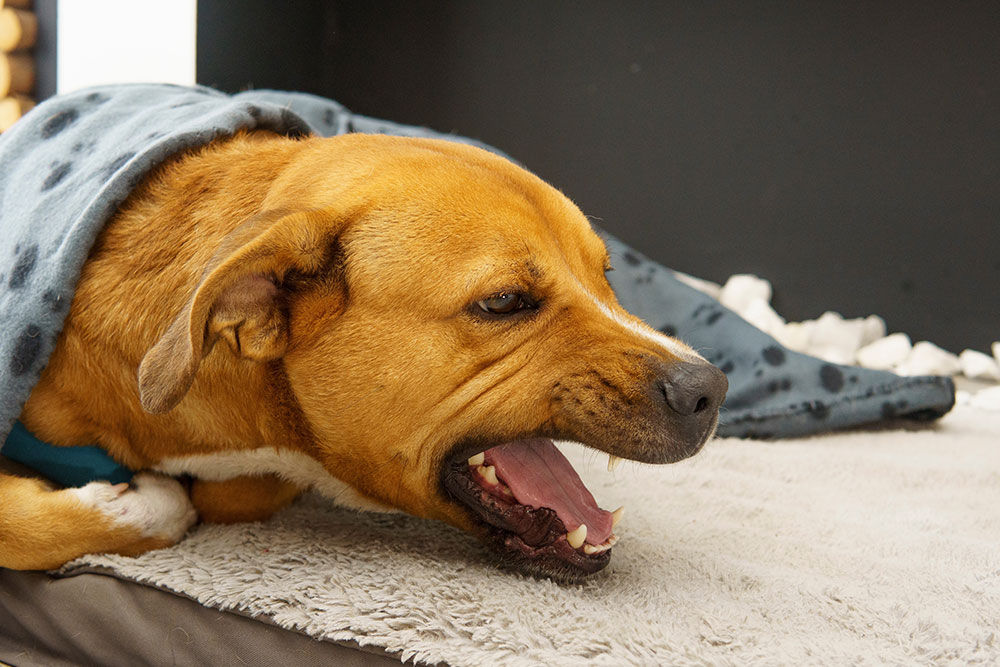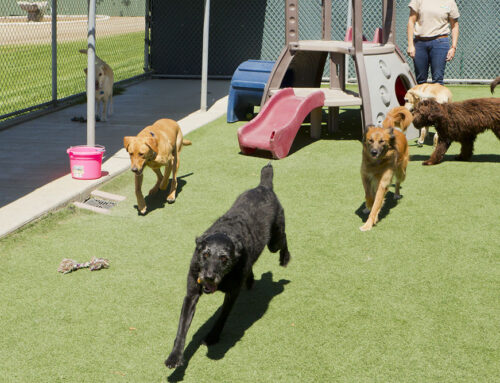Hearing your dog develop a sudden, persistent cough can be both startling and worrisome. At Animal Clinic of Council Bluffs, we understand that your dog isn’t just a pet—they’re family. When something feels off, you want answers and reassurance quickly.
One of the most common causes of coughing in dogs is kennel cough, a highly contagious respiratory condition that spreads easily in social environments like boarding facilities, grooming salons, and dog parks. If you’re navigating your dog’s symptoms for the first time, or looking for ways to prevent future occurrences, you’re in the right place. We’re here to help you understand what kennel cough is, how it spreads, and how to care for your dog during recovery.
What Is Kennel Cough?
Kennel cough, formally known as Canine Infectious Respiratory Disease Complex (CIRDC), is a contagious upper respiratory infection that affects the windpipe and bronchi. It’s often caused by a combination of viruses and bacteria, with the most common pathogens including:
- Bordetella bronchiseptica
- Canine parainfluenza virus
- Canine adenovirus
Kennel cough typically presents as a dry, forceful, “goose-honk” cough that may sound alarming but is often mild in healthy adult dogs. That said, it can lead to more serious complications in young puppies, seniors, or dogs with compromised immune systems.
How Dogs Catch Kennel Cough
This condition spreads primarily through airborne respiratory droplets, shared water bowls, or direct contact—making group settings a prime environment for transmission. Some common risk factors include:
- Poor ventilation in indoor boarding or daycare facilities
- Stressful environments such as shelters or busy grooming salons
- Exposure to infected dogs at dog parks or training classes
- Temperature extremes, which can reduce respiratory defenses
- Cross-species exposure: While rare, Bordetella bronchiseptica can also affect cats. Learn more from iCatCare
Why Kennel Cough Deserves Attention
While many cases are mild and self-limiting, kennel cough isn’t something to brush off—especially in at-risk pets. Without proper care, it can escalate into:
- Pneumonia or severe lower respiratory infections
- Chronic bronchitis in dogs with repeated exposure or underlying conditions
- Secondary bacterial infections requiring antibiotics
Prompt recognition and treatment can make a meaningful difference in recovery, comfort, and minimizing spread.
Recognizing the Symptoms of Kennel Cough
The hallmark symptom is a dry, hacking cough, often worse at night or after excitement or exercise. Other symptoms may include:
- Nasal discharge (clear or mucopurulent)
- Sneezing or gagging after coughing
- Mild lethargy or decreased appetite
- Low-grade fever
- Occasional vomiting triggered by coughing
Worried it could be something else? Tracheal collapse, for instance, presents with similar coughing but has different causes and treatments. Read more about it in AKC’s Collapsed Trachea Guide.
How Kennel Cough Progresses
Kennel cough typically runs its course within 7–21 days in otherwise healthy dogs. But without appropriate care, it can lead to:
- Severe respiratory distress, especially in vulnerable dogs. Review signs in this AAHA resource.
- Secondary bacterial infections, which often require prescription antibiotics.
- Long-term inflammation and chronic coughing
If your dog has been coughing for more than a week, seems lethargic, or is struggling to breathe, contact your veterinarian immediately.
How We Diagnose Kennel Cough at Animal Clinic of Council Bluffs
A veterinary visit is essential for accurate diagnosis and to rule out other respiratory illnesses. Here’s what to expect:
- Physical exam: Listening for abnormal lung sounds, testing tracheal sensitivity, and checking lymph nodes and temperature
- Diagnostic tests, such as:
- PCR swabs to detect Bordetella or viral agents
- Chest X-rays to rule out pneumonia
- Bloodwork to assess immune response
Schedule an appointment with us to ensure timely evaluation and care.
Treatment: How We Help Your Dog Recover
Most cases of kennel cough respond well to supportive care, though more severe infections may require additional interventions:
Mild to Moderate Cases
- Rest and reduced activity to prevent coughing fits
- Cough suppressants (if appropriate and prescribed)
- Antibiotics for secondary bacterial infections
- Humidity therapy via steamy bathrooms or cool mist humidifiers
More Severe Cases
- Nebulization or inhaled medications
- Hospitalization if respiratory function declines
We may also discuss how to use a harness instead of a collar to reduce throat irritation during recovery.
Preventing Kennel Cough: What Every Dog Owner Should Know
Prevention starts with awareness and action:
- Vaccination: The Bordetella vaccine is highly recommended for dogs who frequent boarding, grooming, or group training. Learn more about vaccines from the AVMA
- Avoiding high-risk environments during outbreaks
- Sanitizing shared items, including water bowls, toys, and leashes
- Choosing well-ventilated facilities for boarding or daycare
Proactive vaccination not only protects your dog—it helps reduce community spread.
At-Home Care Tips for Dogs with Kennel Cough
Caring for a recovering dog at home can be straightforward with the right environment:
- Use a humidifier in your dog’s resting area
- Provide soft, warm bedding in a quiet space
- Offer warm, palatable meals to encourage appetite
- Keep them away from smoke or air fresheners, which can irritate sensitive airways
- Isolate from other pets to reduce transmission risk
Even once symptoms improve, allow for a gradual return to activity.
Before Your Vet Visit: What to Bring
Help us give your pet the most accurate care by preparing:
- A timeline of symptoms (when they started, how they’ve changed)
- Your dog’s current medications and vaccination records
- Any videos of coughing or unusual breathing
- A list of questions or concerns about diagnosis, care, or recurrence
Frequently Asked Questions About Kennel Cough
Is kennel cough contagious to humans?
No. Kennel cough is not considered a risk to human health.
Can my dog still go outside during recovery?
Yes, but avoid other dogs and crowded areas until your vet says it’s safe.
How long is kennel cough contagious?
Dogs may remain contagious for 10–14 days, sometimes even after symptoms resolve.
We’re Here to Help—Every Step of the Way
At Animal Clinic of Council Bluffs, we know how unsettling it can be when your dog isn’t feeling their best. Whether you’re facing a suspected case of kennel cough or looking to prevent one, our team is here to support you with thorough diagnostics, compassionate treatment, and ongoing guidance.
If you’re concerned about your dog’s cough or need to discuss vaccine options, contact us directly. Let’s keep your dog’s tail wagging—and their lungs healthy.







Leave A Comment